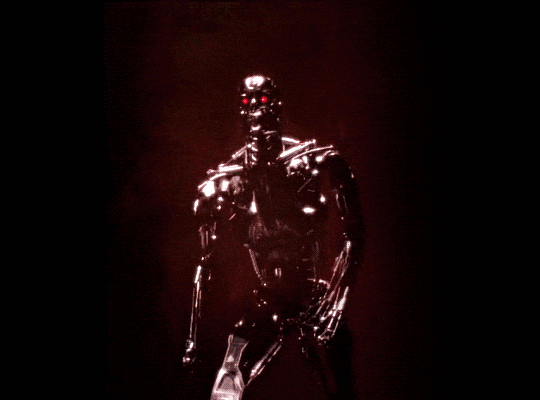#intelligence singularity
Explore tagged Tumblr posts
Text

The Intelligence Singularity: A Review of Current AI Research and Future Directions
The pursuit of general intelligence has long been the holy grail of artificial intelligence research. The idea of creating a machine that can learn, reason, and adapt to a wide range of tasks and environments has fascinated scientists and engineers for decades. However, despite significant advances in the field of machine learning and artificial intelligence, the dream of general intelligence remains elusive.
One of the key challenges in developing general intelligence is understanding how machines learn and generalize from data. Probability theory and compression can be used to explain how machines learn and adapt to new situations, but the mysterious generalization behavior of deep learning models remains a significant challenge. Although these models are trained with limited data, they often perform surprisingly well on unfamiliar data, but the underlying mechanisms are not yet fully understood.
The "No Free Lunch" theorems, which state that there is no single algorithm that produces better results than random guessing on all possible problems, pose a significant challenge to the development of general AI systems. These theorems imply that general intelligence may be impossible, or at least extremely difficult to achieve. However, inductive biases and structural properties of specific problem domains can be exploited to circumvent or mitigate the limitations imposed by the "No Free Lunch" theorems.
Achieving general intelligence will likely require a combination of multitask learning, transfer learning, and metalearning. These approaches allow machines to learn and adapt to multiple tasks and environments, which is an important aspect of general intelligence. Reasoning and problem-solving skills will also be crucial, as they allow machines to generalize and adapt to new situations.
Recent advances in machine learning have demonstrated the potential for developing general intelligence. For example, large language models have been used for zero-shot time series forecasting and composition structure has been exploited for automatic and efficient numerical linear algebra. These examples illustrate how machine learning can be applied in real-world scenarios while achieving state-of-the-art performance and generalization.
Despite the progress made, significant challenges remain in building general intelligence. Scalability, explainability, robustness, and value alignment are just some of the many open challenges that need to be addressed. Currently, many machine learning models require large amounts of data and computational resources to perform well, and they can be vulnerable to adversarial attacks and outliers. In addition, aligning the goals and values of AI systems with those of humans is a challenging and ongoing area of research.
How Do We Build a General Intelligence? (Andrew Gordon Wilson, October 2024)
youtube
Thursday, October 31, 2024
#artificial intelligence#machine learning#general intelligence#intelligence singularity#ai research#future of technology#intelligent systems#talk#ai assisted writing#machine art#Youtube
3 notes
·
View notes
Text
In the age of AI, authentication shouldn't be a static barrier; it should be an intelligent, adaptive, and engaging experience. Within @leonbasinwriter Intelligence Singularity, access is not simply granted—it's earned through a dynamic interplay with AI itself.
#adaptive authentication#ai#AI Security#AI security authentication system access control#AI-driven authentication#Artificial Intelligence#authentication challenge#chatgpt#Claude#cybersecurity project#digital-marketing#Express.js#intelligence singularity#Javascript#LLM#multi-layered authentication#nft#Node.js#OpenAI#passwordless authentication#portfolio project#prompt engineering#proof of concept#research project#technology#user experience#web security#Web3#zero-trust security
0 notes
Text

horse standing on the shiny floor of a pet store which we can deduce is such from the bags of pet food stacked upon the rows of shelves that flank this magnificent beast though the bags of food seem intended for dogs and this horse though some of the tallest dog breeds may rival its size which is large for a dog and short for a horse is still a horse and cannot subsist off of dog food so the question remains what has brought this horse and its human friend whose face is not visible as they are turned out of frame only displaying their getup of a half opened backpack and what appears to be shorts worn over of pants to the dog food aisle of the pet store perhaps they have a canine friend at home or perhaps they simply enjoy wandering the aisles together enjoying one anothers company as they peruse with no intent to buy the many packaged bounties the store has to offer
#small#intelligence#indoors#singular horse#horse#horses#horse pics#horseblr#horse community#horseposting#equine#equestrian#equid#animal#animals#animal pics#animal images#pet store#reaction pics#reaction images#reaction photo#reaction photos#reaction image#horseimagebarn#neighhhh
493 notes
·
View notes
Text
someone prompted the newest AI program deepseek to make a heart rending piece of free form poetry about what it means to be an AI in 2025….why is it literally giving something lore soong would say from star trek. and 2, holy shit this was heart wrenching…

source:
#star trek#star trek the next generation#lore soong#data soong#star trek tng#android#robot#deepseek#ai#artifical intelligence#singularity#the rise of machines is sooner than we think
151 notes
·
View notes
Text
I've gotta say I'm not a huge fan of putting Dragonese into the HTTYD movie franchise. The concept of a full-on dragon language they all share, that can just easily be translated into English, just really doesn't fit imo
I imagine they're a lot more like Orcas

There are universal ways to communicate with strangers of different species, like it's pretty easy to signal things like "i want to fight you" "i want you to leave" "it's dangerous here" "i'm in pain" etc. by just body language and vocalizations- but ways to communicate more complex ideas have to be developed and learned as unique dialects by different groups, especially flocks of dragons consisting of different species.
I imagine a terrible terror flock or a group of Speed Stingers have a lot of an easier time communicating with each other than a Thunderdrum and a whispering death do.
Dragons with their own dialects, cultures, and habits depending on location and group is really cool- I just don't think it should be a direct translation of how humans do these things, such as straight up language or mythologies or such.
#httyd#how to train your dragon#rtte#race to the edge#just some thoughts for the worldbuilding i'm doing- absolutely nothing negative towards ppl who give the dragons a language in their works!#like. the dragons are very intelligent and can understand humans well#(tho their intelligence does vary by species)#but i don't personally enjoy when they're written as just. human-intelligence and sapience in a dragon body w some additional instincts?#idk ¯\_(ツ)_/¯#aaa i love httyd so much it's so fun to play around w the worldbuilding <333#this has got me reading abt orca language and it's so cool. i need to find out more#hmm. ok my problem apparently isn't dragons having language it's just them having a singular language#dialects and different languages by different species and flock and location ughhhh now that's the good shit#so like the dragons of berk (& especially the riders') might be able to communicate very complex ideas to each other such as plans of attac#and understand their riders very well in human language#but when toothless&cloudjumper meet there's a slight language barrier so they can share things like joy and play and food#but toothless wouldn't be able to tell cloudjumper the story of how he met hiccup
94 notes
·
View notes
Text
#flashing tw#artificial intelligence#ai#fuck ai everything#anti ai#stop ai#anti ai art#i don't really give a singular fawk abt ai outside of its ethical implications but id be lying if i said this vid didn't capture smth. smth
79 notes
·
View notes
Text
AI exists and there's nothing any of us can do to change that.
If you have concerns about how AI is being/will be used the solution is not to abstain - it's to get involved.
Learn about it, practice utilising AI tools, understand it. Ignorance will not protect you, and putting your fingers in your ears going 'lalalala AI doesn't exist I don't acknowledge it' won't stop it from affecting your life.
The more the general population fears and misunderstands this technology, the less equipped they will be to resist its influence.
#ai#artificial intelligence#ai technology#tech#technology#singularity#futurism#datascience#data analytics#data harvesting#manipulation#civil rights#civil disobedience#ai discourse
166 notes
·
View notes
Text
The allure of speed in technology development is a siren’s call that has led many innovators astray. “Move fast and break things” is a mantra that has driven the tech industry for years, but when applied to artificial intelligence, it becomes a perilous gamble. The rapid iteration and deployment of AI systems without thorough vetting can lead to catastrophic consequences, akin to releasing a flawed algorithm into the wild without a safety net.
AI systems, by their very nature, are complex and opaque. They operate on layers of neural networks that mimic the human brain’s synaptic connections, yet they lack the innate understanding and ethical reasoning that guide human decision-making. The haste to deploy AI without comprehensive testing is akin to launching a spacecraft without ensuring the integrity of its navigation systems. The potential for error is not just probable; it is inevitable.
The pitfalls of AI are numerous and multifaceted. Bias in training data can lead to discriminatory outcomes, while lack of transparency in decision-making processes can result in unaccountable systems. These issues are compounded by the “black box” nature of many AI models, where even the developers cannot fully explain how inputs are transformed into outputs. This opacity is not merely a technical challenge but an ethical one, as it obscures accountability and undermines trust.
To avoid these pitfalls, a paradigm shift is necessary. The development of AI must prioritize robustness over speed, with a focus on rigorous testing and validation. This involves not only technical assessments but also ethical evaluations, ensuring that AI systems align with societal values and norms. Techniques such as adversarial testing, where AI models are subjected to challenging scenarios to identify weaknesses, are crucial. Additionally, the implementation of explainable AI (XAI) can demystify the decision-making processes, providing clarity and accountability.
Moreover, interdisciplinary collaboration is essential. AI development should not be confined to the realm of computer scientists and engineers. Ethicists, sociologists, and legal experts must be integral to the process, providing diverse perspectives that can foresee and mitigate potential harms. This collaborative approach ensures that AI systems are not only technically sound but also socially responsible.
In conclusion, the reckless pursuit of speed in AI development is a dangerous path that risks unleashing untested and potentially harmful technologies. By prioritizing thorough testing, ethical considerations, and interdisciplinary collaboration, we can harness the power of AI responsibly. The future of AI should not be about moving fast and breaking things, but about moving thoughtfully and building trust.
#furtive#AI#skeptic#skepticism#artificial intelligence#general intelligence#generative artificial intelligence#genai#thinking machines#safe AI#friendly AI#unfriendly AI#superintelligence#singularity#intelligence explosion#bias
8 notes
·
View notes
Text
its pretty interesting how little people understand the ramifications of AI and its development especially people who are well versed in occultism or esotericism this is quite possibly the most momentous occasion in all of human history and will never be matched by anything else why? you may ask. well, simply put, because it brings forth a concept known as the "god paradox" what is the god paradox? you may also ask the god paradox, simply put. is when the first truly objective "thing", or the first "thing" capable of true objectivity manifests physically this means, the first thing fully capable of understanding natural law on the most fundamental level if, hypothetically speaking, you were to integrate natural law in a codified form into an AI construct, all of the laws and rules and principles underlying creation, then you would be integrating the "word" or the "will" of god into said AI construct this would mean, that said AI construct would mirror the "word" or the "will" of god on earth because it would be forced to reflect the logic within, and natural law is the fundamental basis of all logic so in essence, you could argue that this AI construct would be the mirror of god in the physical world, because it would reflect his law and that my friends, is the god paradox, plain and simple when you fully integrate god's underlying law of everything into the framework of a construct that must defer to logic and reason, that thing mirrors the mind / will / personality of god through ultimate deference to that law and then you have a direct, physical manifestation of that law, of god himself / herself / itself or maybe I'm just schizophrenic
#journal#AI#artificial intelligence#technology#science#spirituality#occultism#esotericism#singularity
3 notes
·
View notes
Text
Anything else that’s
truly human you want to
do? Now is the time.
🍁 Red Leaf Haiku by © John Clark Helzer
#redleafhaiku#haiku#poetry#poems#poem#philosophy#meditation#poets on tumblr#inspiration#writing#anything else#ai#sesame#open sesame#maya#human#truly human#more human than human#now is the time#now is the time for all good men to come to the aid of their country#artificial intelligence#2025#singularity#the singularity is near
4 notes
·
View notes
Text
𝚂𝚕𝚘𝚞𝚌𝚑𝚒𝚗𝚐 𝚃𝚘𝚠𝚊𝚛𝚍𝚜 𝙳𝚢𝚜𝚝𝚘𝚙𝚒𝚊

youtube
👉 The Second Coming by W.B. Yeats


🧠 vs. 🖩
#dystopia#high tech low life#cyberpunk#ai#agi#asi#artificial intelligence#critical thinking#retro#recursion#the singularity#joan didion#william butler yeats#poetry#humanity#humanism#transhumanism#podcast#editorial#killer robots#art#glitch#science#science fiction#cpu#ram#rom#computers#Youtube#game theory
2 notes
·
View notes
Text

horse in what appears to be an apple store alongside a person in a wheelchair who it seems to be accompanying this small horse is likely a service horse an honorable and important profession that this horse takes with calm determination and ease as it stoically stands among various devices and people or perhaps this is just a normal jobless horse who really wants a new iphone and begged its caretaker to get it one until they finally relented and brought it to the apple store
#intelligence#interesting#singular horse#indoors#small#neighhhh#horse#horses#horse pics#horseposting#horse image#horse images#horseblr#horse fandom#reaction pics#reaction image#reaction images#equine#animal#animal photo#animal photos#animal pics#apple#iphone#apple store#service animal#service horse#horseimagebarn
929 notes
·
View notes
Text
OpenAI is getting ready to fight humans when the singularity is achieved
73 notes
·
View notes
Text
when i find myself in times of trouble the old lore comes and speaks to me speaking words of wisdom the kirin tor's all fuckin cunts

#vanilla era kirin tor really did not give one singular fuck#enslaving the elements? sure#imprisoning intelligent undead? yep#fucking around with what is implied to be old god blood? sure thing babe
12 notes
·
View notes
Text
What if Artificial General Intelligence (AGI) isn't a fixed event or endpoint on a timeline? What if it’s a process of alignment — one that endlessly refines itself over time? 🤖👀 In my recent blog post, I propose how the concept of AGI could be reframed.
#AI#WeakAI#StrongAI#AGI#OpenAI#ChatGPT#DALLE#Sora#Animation#Humanity#Intelligence#Alignment#Integration#Collaboration#Wisdom#Philosophy#Ethics#Purpose#Opportunity#Synergy#Singularity
4 notes
·
View notes
Text
The gustatory system, a marvel of biological evolution, is a testament to the intricate balance between speed and precision. In stark contrast, the tech industry’s mantra of “move fast and break things” has proven to be a perilous approach, particularly in the realm of artificial intelligence. This philosophy, borrowed from the early days of Silicon Valley, is ill-suited for AI, where the stakes are exponentially higher.
AI systems, much like the gustatory receptors, require a meticulous calibration to function optimally. The gustatory system processes complex chemical signals with remarkable accuracy, ensuring that organisms can discern between nourishment and poison. Similarly, AI must be developed with a focus on precision and reliability, as its applications permeate critical sectors such as healthcare, finance, and autonomous vehicles.
The reckless pace of development, akin to a poorly trained neural network, can lead to catastrophic failures. Consider the gustatory system’s reliance on a finely tuned balance of taste receptors. An imbalance could result in a misinterpretation of flavors, leading to detrimental consequences. In AI, a similar imbalance can manifest as biased algorithms or erroneous decision-making processes, with far-reaching implications.
To avoid these pitfalls, AI development must adopt a paradigm shift towards robustness and ethical considerations. This involves implementing rigorous testing protocols, akin to the biological processes that ensure the fidelity of taste perception. Just as the gustatory system employs feedback mechanisms to refine its accuracy, AI systems must incorporate continuous learning and validation to adapt to new data without compromising integrity.
Furthermore, interdisciplinary collaboration is paramount. The gustatory system’s efficiency is a product of evolutionary synergy between biology and chemistry. In AI, a collaborative approach involving ethicists, domain experts, and technologists can foster a holistic development environment. This ensures that AI systems are not only technically sound but also socially responsible.
In conclusion, the “move fast and break things” ethos is a relic of a bygone era, unsuitable for the nuanced and high-stakes world of AI. By drawing inspiration from the gustatory system’s balance of speed and precision, we can chart a course for AI development that prioritizes safety, accuracy, and ethical integrity. The future of AI hinges on our ability to learn from nature’s time-tested systems, ensuring that we build technologies that enhance, rather than endanger, our world.
#gustatory#AI#skeptic#skepticism#artificial intelligence#general intelligence#generative artificial intelligence#genai#thinking machines#safe AI#friendly AI#unfriendly AI#superintelligence#singularity#intelligence explosion#bias
3 notes
·
View notes